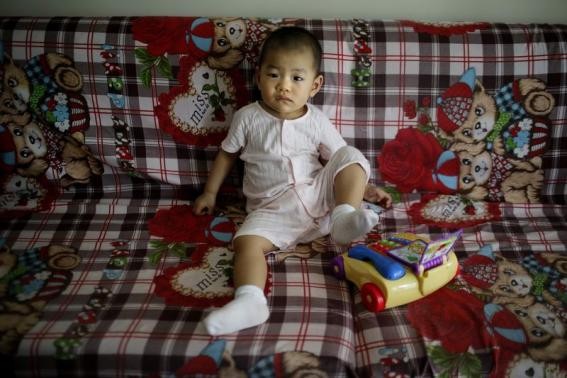The recent annual meeting of the Shanghai People's Congress provided a forum for the Shanghai Municipal Commission of Health and Family Planning to release data from 2014, when family planning legislation was revised to allow women of childbearing age to give birth to a second child.
Those who were interested in a second child were required to submit an application, and the opportunity was only open to couples in which either of the parents is an only child.
The commission's Fan Hua reported that, as of the end of December, 16,639 second-child applications have been approved by the Shanghai Municipal Government since applications were first accepted in early 2014.
However, Fan clarified that the total number of applicants represented only 5 percent of the 90 percent of the city's women of childbearing age who were eligible during the period.
The expectation of the Shanghai government was higher than the total number of actual applications, even though Shanghai's fertility rate is one of the lowest in the world and has been following a downward trend since 1971. The 2010 national census indicated that Shanghai's fertility rate was 0.74, which was considerably lower than the estimated national rate of 1.18.
Liang Zhongtang, a demographer with the Shanghai Academy of Social Sciences, told the New York Times that "the Shanghai case has shown that whether people want to give birth or not has nothing to do with policies."
Even though the burden of living costs and career are cited as the primary reasons for the lower number of applications, the Shanghai Municipal Government expects an increase over the next three to five years, as around 20,000 couples are likely to submit second-child applications on an annual basis. Of those who applied in 2014, most were above the age of 30.



























